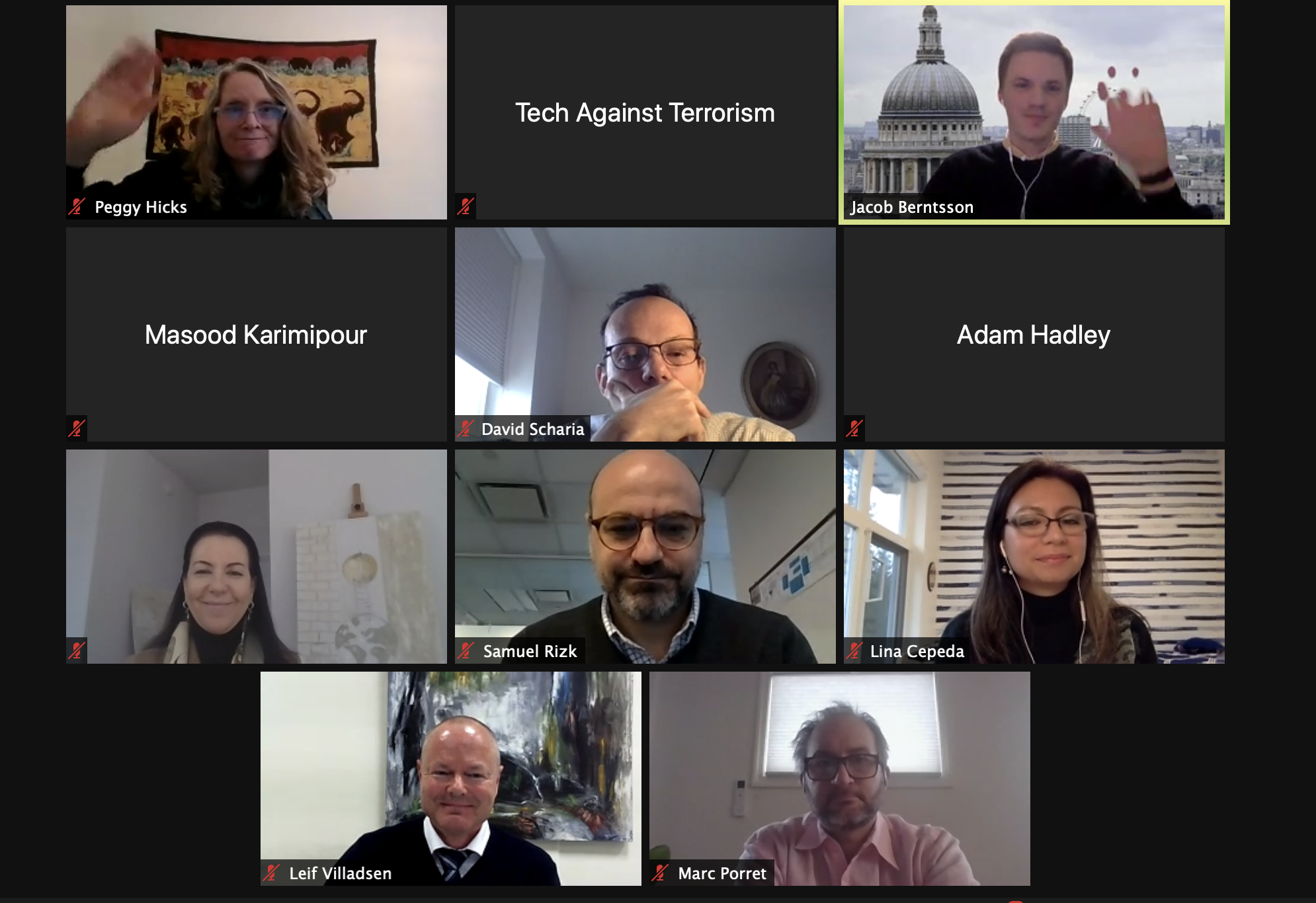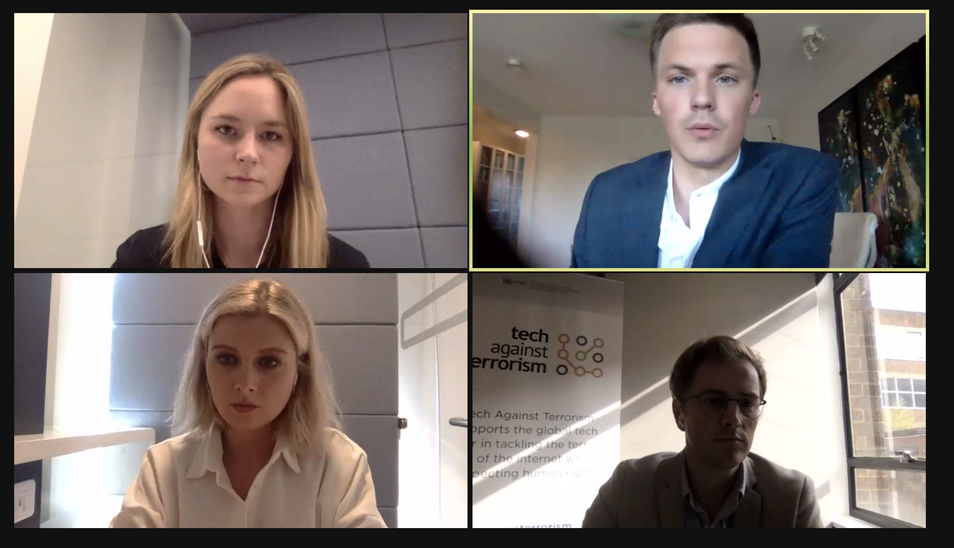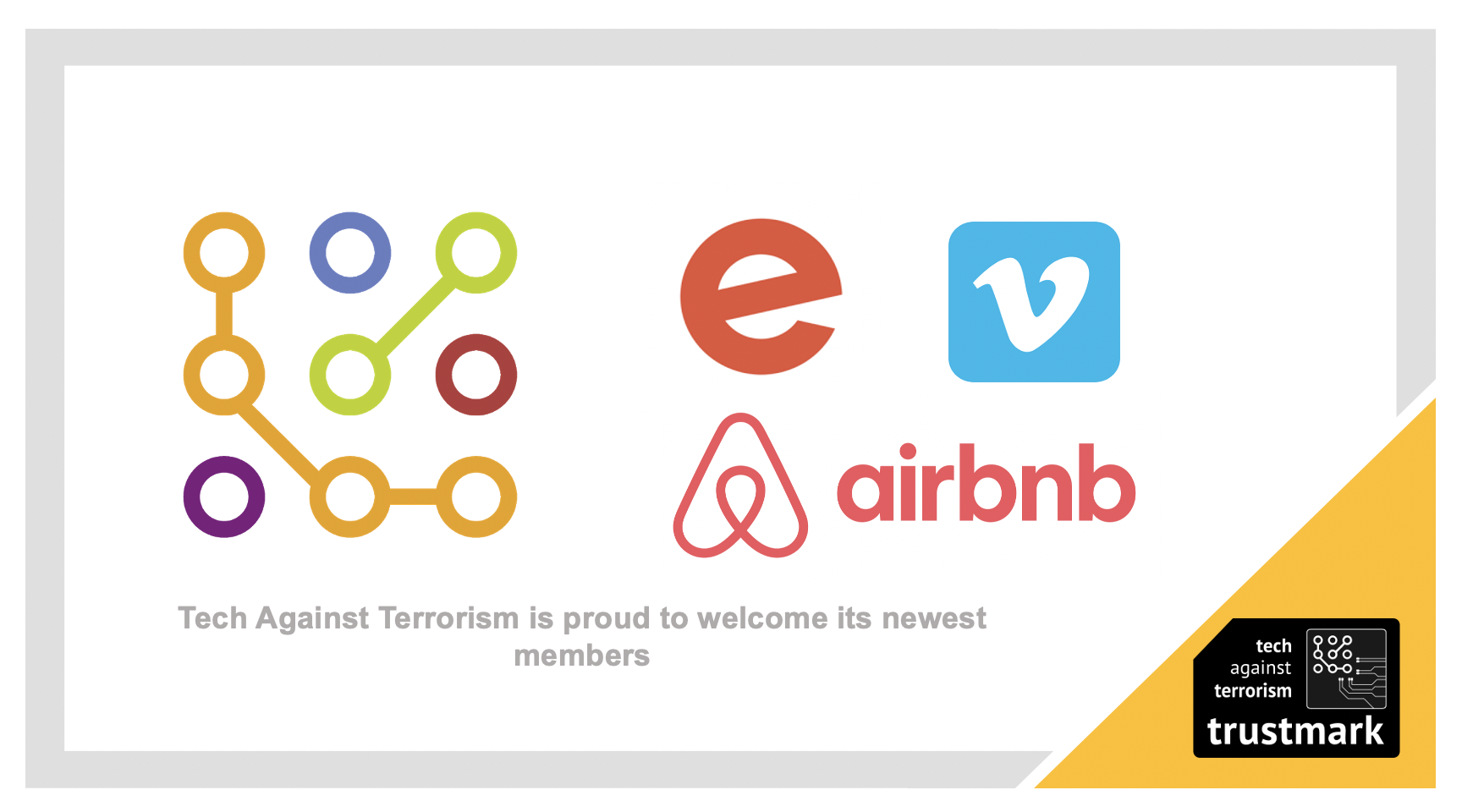Tech Consultations
- We want to hear from you! Tech Against Terrorism has launched two consultations to gain insights on tech companies’ experiences with countering terrorist use of the internet, and feedback on our work in supporting the tech sector. It’s short and fully anonymous, please respond here.
The Terrorist Content Analytics Platform
- We have just released the first Terrorist Content Analytics Platform (TCAP) newsletter, containing a monthly overview of the URL alerts that are shared with smaller tech companies to support swift identification of terrorist content. If you would like to stay up to date, you can view our January 2021 newsletter and subscribe to future newsletters here.
- We have launched a Twitter account for the TCAP. You can follow us at @TCAPAlerts for more more information on the platform, as well as monthly statistics on the TCAP alerts.
- We hosted our first 2021 session of the TCAP office hours. This is one of the steps we are taking to ensure that the platform is developed in a transparent manner. If you would like to access a recording of this session, you can reach out to us at contact@techagainstterrorism.org.
Stakeholder Processes
- Tech Against Terrorism joined the EU Internet Forum Ministerial Meeting held on 25 January. Adam Hadley, our Director, presented on our work supporting smaller tech companies and the Terrorist Content Analytics Platforms, and called for improved government designation of far-right terrorist groups, as well as increased research into terrorist use of decentralised platforms and terrorist operated websites.
- Tech Against Terrorism published a response to the EU’s Digital Services Act. Read our full response here.
- Tech Against Terrorism submitted a response to the United Kingdom’s House of Lords Communications and Digital Committee inquiry into Freedom of Expression Online consultation. You can read the response here.
- Our OSINT Analyst, Arthur Bradley, presented at a workshop organised by the United Nations Office on Drugs and Crime (UNODC) for Jordan on “The Online Terrorist Modus Operandi in the MENA region”.
Media coverage
- In an article for Axios, our Director, Adam Hadley, discussed far-right terrorist use of online platforms, and the importance of a holistic response that addresses root causes in addition to online countermeasures.
- This month, Adam Hadley spoke with POLITICO about violent far-right extremists’ attempts to radicalise and recruit supporters of US former President Trump in the wake of the storming of the US Capitol on 6 January. Read the article here.
- Tech Against Terrorism was quoted in the Observer earlier in January, analysing the efforts of far-right extremists to radicalise and recruit Trump supporters who have been pushed off Parler after its deplatforming.
What's up next?
- The Tech Against Terrorism’s e-learning webinar series will continue in 2021, providing further insights into terrorist use of the internet and how tech companies can counter this threat whilst respecting human rights.
- The Online Regulation Series Short Report: To follow-up on our Online Regulation Series, we will be publishing a short report collating all blog posts in one place for you to have an easy access, followed by a more complete handbook soon with additional analysis and recommendations.
| Tech Against Terrorism Reader's Digest – 5 February Our weekly review of articles on terrorist and violent extremist use of the internet, counterterrorism, digital rights, and tech policy. |
Top stories:
- The Government of Canada has placed 13 new groups on the Criminal Code list of terrorist entities, including four additional far right violent extremist groups:
- Atomwaffen Division
- The Base
- The Proud Boys
- Russian Imperial Movement
- All of the above groups are now included in the first version of the TCAP. To read more about our TCAP content inclusion policy, seehere.
- To see Tech Against Terrorism’s press release on this designation announcement, see here.
- According to a recently released United Nations report, the leader of al-Qaeda’s Yemeni affiliate has been under arrest for several months.
- Elizabeth Denham, from the Information Commissioner's Office, has announced that companies including Facebook and Instagram have until September 2021, for introducing measures to ensure they abide by their age requirements or face an investigation by her office that could lead to high penalties.
- The International Centre for Counter-Terrorism has published a report called Mitigating the Impact of Media Reporting of Terrorism: Iraq case study.
- Moonshot CVE has published a report titled From Shitposting to Sedition: 2020 US Elections Report, on tracking and countering conspiracy theories, disinformation and violence around the 2020 US presidential election.
Tech policy
- Reinvigorating Internet Policy by Doubling Down on Human Rights: In this piece, Jason Pielemeier argues that the Biden administration should reframe the US approach to internet regulation and governance by articulating a broad, coherent vision for an open internet anchored on core human rights and democratic values. He says this agenda should acknowledge present challenges and articulate a purposeful, multifaceted, and coordinated response that can reinvigorate and expand multilateral and multistakeholder alignment in favour of digital freedom and interoperability. He stresses the importance of recognising that human rights and democratic values are core to national security and should guide digital policy. Pielemeier provides examples of how the administration should achieve such goals, namely, by investing in rights-protecting digital technology, by rolling back inconsistent, unilateral Trump administration actions, strengthen relationships with democratic allies, and empower civil society organizations, independent media, and others to foster collaborative and flexible problem solving that can prove sustainable over time. (Pielemeier, CFR, 2.02.2021).
- Vestager: Social Media Companies Were Right to Ban Trump: This article, by Mark Scott, sheds light on Margrethe Vestager’s, the Executive Vice-President of the European Commission for A Europe Fit for the Digital Age and Competition, view regarding the recent blocking of Donald Trump’s account by Facebook and Twitter. According to what Margrethe Vestager told POLITICO, she believes that the companies were right to block Donald Trump from their global platforms following the Capitol Hill riots. She added that the European Commission’s new Digital Services Act would have intervened before the private companies blocked Donald Trump, noting that “there would have been an interaction with the user along the way”. She additionally stressed that “we want to increase transparency on how these decisions are made”, emphasising the need for platforms to notify their users if they plan on banning them. (Scott, POLITICO, 04.02.2021).
Jason Pielemeir recently spoke on the topic of online regulation at our Online Regulation Series concluding webinar on “The State of Global Online Regulation.” If you would like to access a recording of a webinar, you can reach out to us at contact@techagainstterrorism.org.
Tech Against Terrorism recently published a response to the EU’s Digital Services Act. Read our full response here.
Far-right violent extremism and terrorism
- US Hate Group Numbers Decline but Online Organizing Has Strengthened, Report Finds: This piece discusses the latest Southern Poverty Law Center (SPLC) annual report, which identified 838 active hate groups operating across the US in 2020. This is a decrease from the 940 documented in 2019 and the record-high of 1,020 in 2018, according SPLC, which track racism, xenophobia and anti-government militias. However, this piece highlights that, according to the report, “it is important to understand that the number of hate groups is merely one metric for measuring the level of hate and racism in America, and that the decline in groups should not be interpreted as a reduction in bigoted beliefs and actions motivated by hate”. Margaret Huan, SPLC president and CEO has emphasised that we need to “start to reckon with all the reasons why those groups have persisted for so long and been able to get so much influence in the last White House, that they actually feel emboldened”. SPLC’s report therefore concludes with several recommendations for the Biden administration, such as calling for the establishment of offices within the Department of Homeland Security, as well as urging improving federal hate crime data collection, training and prevention; and for enacting federal legislation that shifts funding away from punishment models and toward preventing violent extremism. (Associated Press, 01.02.2021).
| For any questions or media requests, please get in touch via: contact@techagainstterrorism.org |
- News (241)
- Counterterrorism (54)
- Analysis (52)
- Terrorism (39)
- Online Regulation (38)
- Violent Extremist (36)
- Regulation (33)
- Tech Responses (33)
- Europe (31)
- Government Regulation (27)
- Academia (25)
- GIFCT (22)
- UK (22)
- Press Release (21)
- Reports (21)
- US (20)
- USA (19)
- Guides (17)
- Law (16)
- UN (15)
- Asia (11)
- ISIS (11)
- Workshop (11)
- Presentation (10)
- MENA (9)
- Fintech (6)
- Threat Intelligence (5)
- Webinar (5)
- Propaganda (3)
- Region (3)
- Submissions (3)
- Generative AI (1)
- Op-ed (1)


